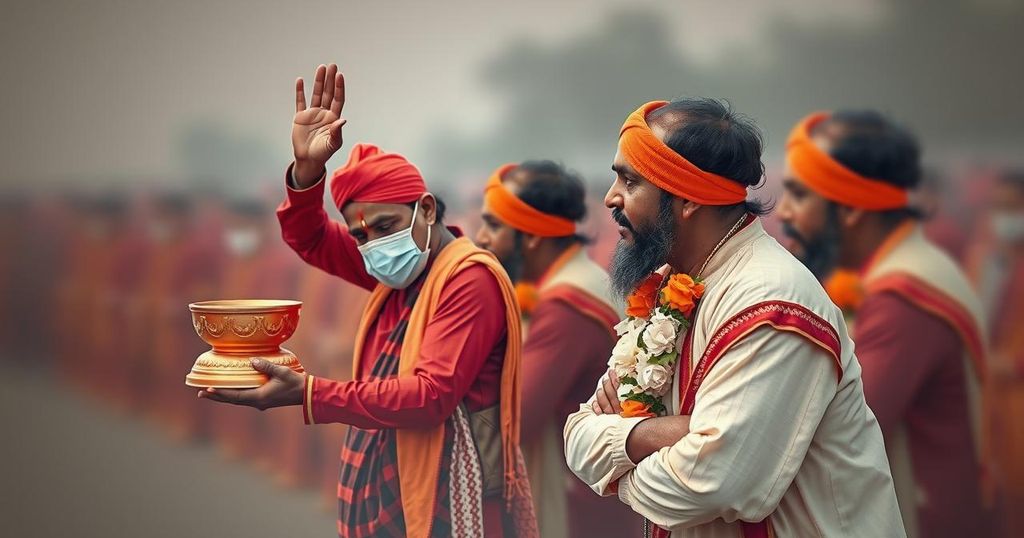Expatriate Bangladeshi Hindus have urged India to seek UN sanctions against Bangladesh to safeguard religious minorities following political turmoil. Their five-point plan emphasizes the need for international intervention, including peacekeeping forces, to address ongoing violence against Hindus, while highlighting the drastic decline in their population.
A group of expatriate Bangladeshi Hindus, associated with the Global Bengali Hindu Coalition, has appealed to the Indian government to advocate for UN sanctions against Bangladesh. This request aims to protect Hindus and religious minorities following the recent political upheaval in Bangladesh. Currently visiting New Delhi, they presented a five-point action plan highlighting their concerns about the treatment of minorities under the interim government, emphasizing the need for international intervention and the completion of the population exchange from 1947.
During a press conference, the group urged the Indian government to request UN peacekeeping forces to ensure the safety of minorities in Bangladesh. They expressed the necessity for targeted sanctions against what they termed an “illegal and hostile regime” that has failed to uphold human rights. Furthermore, they raised the call for designated safe zones in areas where Hindus are the majority, to guarantee their security.
The representatives lamented the significant decrease of the Hindu population in Bangladesh, from 22% in 1951 to just 7.95% in 2022, attributing this decline to persistent injustices and a lack of protective measures. They also have called on India to reassess its support for Bangladesh in international peacekeeping, given its humanitarian obligations towards minorities.
Sitangshu Guha, a prominent member of the group, indicated the historic friendship between India and Bangladesh, referencing India’s role in the liberation of Bangladesh in 1971. He appealed for India’s intervention to prevent the potential extinction of the Hindu community there, stating, “India is our best friend, it can help rescue the 20 million Hindus of Bangladesh.”
In the backdrop of deteriorating India-Bangladesh relations following Sheikh Hasina’s resignation, the group highlights the persistent risk faced by Bangladesh’s minorities, despite the interim government’s denial of exaggeration regarding societal violence against Hindus. They presented evidence documenting numerous attacks on Hindu sites, showcasing the vulnerabilities still faced by the minority community.
The issue at hand involves the plight of Hindu minorities in Bangladesh, where reports of violence and discrimination have surged in recent months, particularly after the political transition in August. As a result, Bangladeshi expatriates, especially those connected to the Global Bengali Hindu Coalition, have sought intervention from India to address these humanitarian concerns. Their advocacy includes calls for international sanctions, peacekeeping forces, and the establishment of protected zones, reflecting a broader apprehension about the treatment of minorities in Bangladesh.
In conclusion, the expatriate Bangladeshi Hindu group’s request signifies a growing urgency to address the plight of Hindus and other minorities in Bangladesh amid reported violence and discrimination. Their appeal to the Indian government for international support and intervention underscores the historical ties between the two nations and the responsibilities that arise from such relations. As conditions for minorities remain precarious, ongoing advocacy may be critical in raising awareness and prompting action for their protection.
Original Source: www.hindustantimes.com






